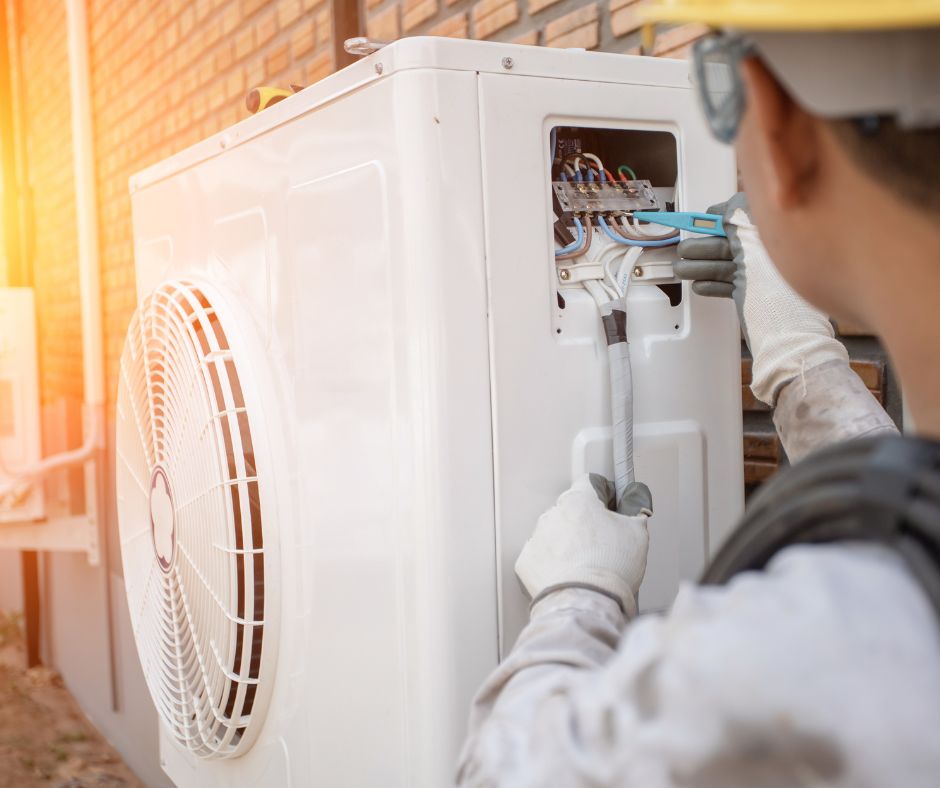As the acronym suggests, HVAC technicians work on heating, ventilation, and air conditioning systems.
Their job is to install, maintain, and repair these systems in a residential or commercial setting.
Have you ever wondered what makes a good HVAC technician? A good HVAC technician possesses numerous skills that enhance their job performance. Our introductory course at Stratford Career Institute can teach you the basics of these HVAC technician skills.
Read on to learn more about the skills needed to be an HVAC technician.
HVAC Technician Skills
HVAC technicians have essential responsibilities in ensuring HVAC systems run effectively and efficiently. If you are looking into a career move, you’ll need these HVAC skills to succeed.
1. Knowledge of HVAC Systems
HVAC technicians must have the proper education and training. Usually, after achieving a high school diploma or GED, prospective HVAC technicians must complete a training program, apprenticeship, or combination of both before applying for a state license.
HVAC technicians must understand piping, wiring, electrical systems, and HVAC machinery.
2. Computer Skills
Many HVAC jobs have entered the digital realm. Whether it’s their company payroll system, input system for job summary notes, or HVAC equipment, computers have become an integral part of an HVAC technician’s job. Therefore, knowledge of computer skills or willingness to learn is essential.
3. Knowledge of Safety Protocols
HVAC technicians must be able to handle HVAC equipment safely. You must be able to identify and correct safety issues. This knowledge includes handling chemicals, operating machinery, and being able to turn power sources on and off.
You must also know how to properly use assistive equipment such as ladders.
4. Time Management Skills
Installation and repairs can be time-consuming. HVAC technicians must know how to delegate and prioritize tasks. Customers want the task to be completed quickly without sacrificing safety. HVAC workers might also need to make sure they get to their next customer appointment on time.
5. Physical Demands
Being an HVAC technician can be a physically demanding job.
You should be able to do the following:
- Lift heavy equipment,
- Bend down,
- Squeeze into awkward places,
- Go up and down stairs, and
- Work outside under unfavorable weather conditions.
6. Problem-Solving Skills
Whether during installation, maintenance, or repair, unexpected problems will arise. A good HVAC technician can identify, troubleshoot, and use their knowledge to create a solution.
Sometimes, this may take doing a little research or reaching out to an associate to fully resolve an issue.
7. Communication Skills
Few jobs exist where you can excel without good communication skills. As an HVAC technician, you will interact with many people, including customers, other employees, and your employer.
For customers especially, communication is vital. HVAC service is customer-orientated, and you must be able to explain what you’re doing in terms everyone understands.
Be prepared for questions. Be polite and respectful. Remember, your customers likely don’t understand the HVAC equipment or system as well as you do.
8. Read Plans
A good HVAC technician knows how to read plans, blueprints, and instruction manuals. This skill is crucial for installation. You must know where to install the machinery, the locations of wiring and plumbing, and what parts to connect.
9. Critical Thinking Skills
HVAC technicians have to deal with complex installations and issues. You must be able to consider the options and identify the best one. You must then develop an implementation plan.
Consider the cost and the effectiveness of your plan for your customer.
10. Building Codes
Every location has unique laws. Some are state-specific, and some are city-specific. HVAC technicians must be well-versed in the state and local ordinances. Some codes deal with the pipes, and others deal with electrical wiring. Some regulate the use of specific machinery. Some codes are specific to residential or commercial buildings.
You must ensure you follow the code when installing and repairing HVAC systems. If the city inspects the building later, they will see that you did not follow the code. The customer will be angry because they won’t pass inspection, and the project will be delayed because the HVAC job must be redone.
Failure to follow code may also harm your reputation as an HVAC technician and the reputation of the company you work for.
Enroll in a Stratford Career Institute Course Today
Established more than 30 years ago, Stratford Career Institute offers at-home foundational programs introducing students to various career paths. Our goal is to provide convenient and affordable learning methods without sacrificing quality.
If you’re looking to get started toward a career in HVAC or want to develop new skills for your own home, contact us to learn more or enroll in our online HVAC training course today.


